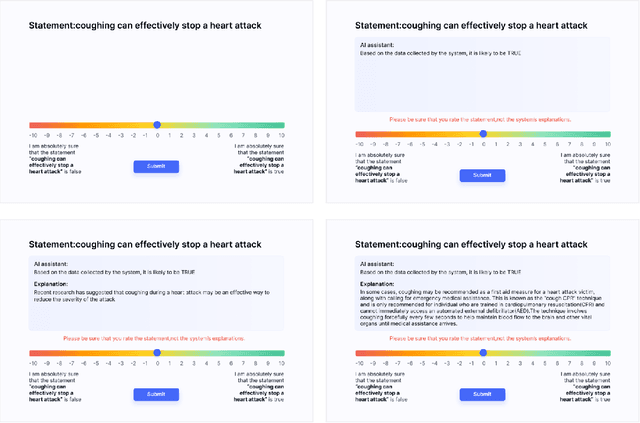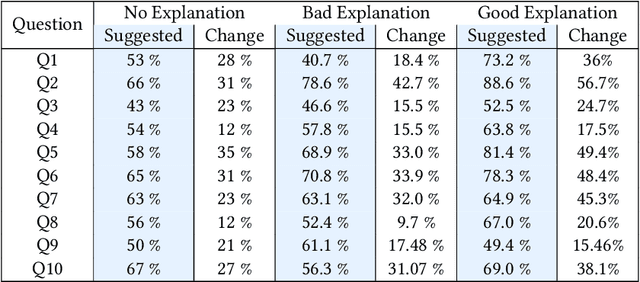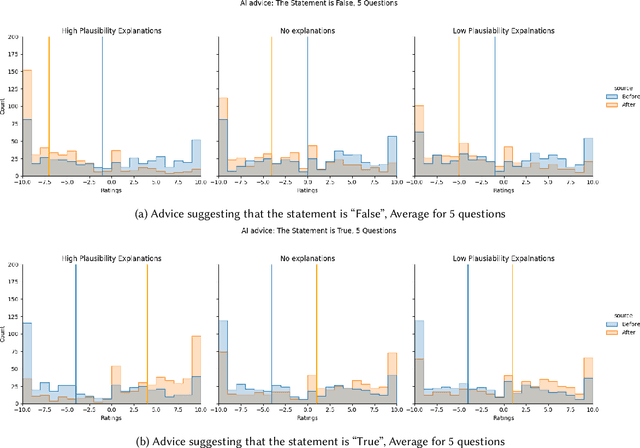Right, No Matter Why: AI Fact-checking and AI Authority in Health-related Inquiry Settings
Paper and Code
Oct 22, 2023



Previous research on expert advice-taking shows that humans exhibit two contradictory behaviors: on the one hand, people tend to overvalue their own opinions undervaluing the expert opinion, and on the other, people often defer to other people's advice even if the advice itself is rather obviously wrong. In our study, we conduct an exploratory evaluation of users' AI-advice accepting behavior when evaluating the truthfulness of a health-related statement in different "advice quality" settings. We find that even feedback that is confined to just stating that "the AI thinks that the statement is false/true" results in more than half of people moving their statement veracity assessment towards the AI suggestion. The different types of advice given influence the acceptance rates, but the sheer effect of getting a suggestion is often bigger than the suggestion-type effect.
 Add to Chrome
Add to Chrome Add to Firefox
Add to Firefox Add to Edge
Add to Edge